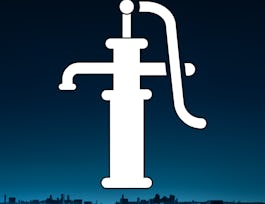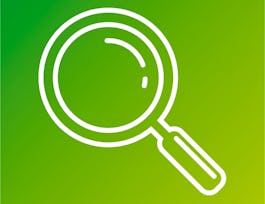Evidence forms the basis of modern medicine. Clinical research provides us with this evidence, guiding health professionals towards solutions to problems that they face in daily practice. Transferring existing problems in medical practice to a research setting is a challenging process that requires careful consideration. The practice of clinical epidemiology aims to address this through the application of established approaches for research in human populations, while at all times focussing on the problem at hand from a clinical perspective.

Clinical Epidemiology
Taught in English
Some content may not be translated
41,522 already enrolled
(334 reviews)
Details to know

Add to your LinkedIn profile
7 quizzes
See how employees at top companies are mastering in-demand skills


Earn a career certificate
Add this credential to your LinkedIn profile, resume, or CV
Share it on social media and in your performance review

There are 7 modules in this course
Welcome! Here you will find general information about the course. The learning objectives, the structure, the format and the requirements of completion will be presented to you.
What's included
4 readings1 discussion prompt
The course will kick off with a brief introduction to some of the key concepts in epidemiological research. We will warm up with two introductory lectures, followed by a small by assignment, before diving further into the field of epidemiology from a clinical context.
What's included
4 videos1 quiz1 peer review
This week we begin at the start of the DEPTh model: Diagnosis and diagnostic research. Through a series of lectures, you will come across familiar challenges in the area of diagnosis and discover how these problems can be addressed by clinical research.
What's included
4 videos1 quiz2 peer reviews
This week you will be introduced to the challenges of evidence-based prognostication: how can we best predict the course of a patient's health? You will learn this week how this kind of question can be addressed through epidemiological research, becoming familiar with how prognostic tools can be developed for use in guiding clinical decisions.
What's included
4 videos1 reading3 quizzes
In our final week of lectures, you will step into the world of intervention research, exploring the "Therapeutic" branch of the DEPTh model. We will focus on the study of intended and unintended effects, exploring a new kind of study design: the randomized controlled trial.
What's included
4 videos1 reading1 quiz
The task this week is in the form of an online debate in which you will study an existing piece of clinical research and contribute to a discussion of this research, forming both an objective assessment and using that to develop your own opinions.
What's included
1 reading1 peer review2 discussion prompts
This is final assessment in the course: a quiz of 30 multiple choice questions that aim to test how well you can apply the knowledge you have gained throughout the course. Good luck!
What's included
2 readings1 quiz1 discussion prompt
Instructors


Offered by
Recommended if you're interested in Basic Science

Universiteit Leiden

The University of North Carolina at Chapel Hill

Imperial College London

Tecnológico de Monterrey
Why people choose Coursera for their career




Learner reviews
Showing 3 of 334
334 reviews
- 5 stars
79.64%
- 4 stars
16.76%
- 3 stars
2.69%
- 2 stars
0.59%
- 1 star
0.29%
New to Basic Science? Start here.

Open new doors with Coursera Plus
Unlimited access to 7,000+ world-class courses, hands-on projects, and job-ready certificate programs - all included in your subscription
Advance your career with an online degree
Earn a degree from world-class universities - 100% online
Join over 3,400 global companies that choose Coursera for Business
Upskill your employees to excel in the digital economy
Frequently asked questions
Access to lectures and assignments depends on your type of enrollment. If you take a course in audit mode, you will be able to see most course materials for free. To access graded assignments and to earn a Certificate, you will need to purchase the Certificate experience, during or after your audit. If you don't see the audit option:
The course may not offer an audit option. You can try a Free Trial instead, or apply for Financial Aid.
The course may offer 'Full Course, No Certificate' instead. This option lets you see all course materials, submit required assessments, and get a final grade. This also means that you will not be able to purchase a Certificate experience.
When you purchase a Certificate you get access to all course materials, including graded assignments. Upon completing the course, your electronic Certificate will be added to your Accomplishments page - from there, you can print your Certificate or add it to your LinkedIn profile. If you only want to read and view the course content, you can audit the course for free.
You will be eligible for a full refund until two weeks after your payment date, or (for courses that have just launched) until two weeks after the first session of the course begins, whichever is later. You cannot receive a refund once you’ve earned a Course Certificate, even if you complete the course within the two-week refund period. See our full refund policy.
